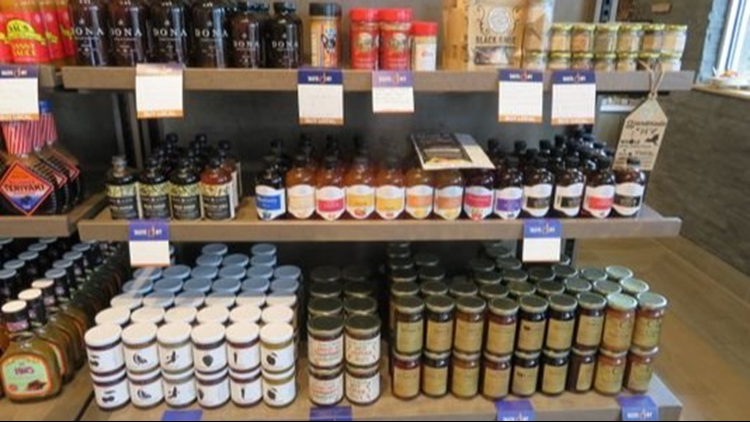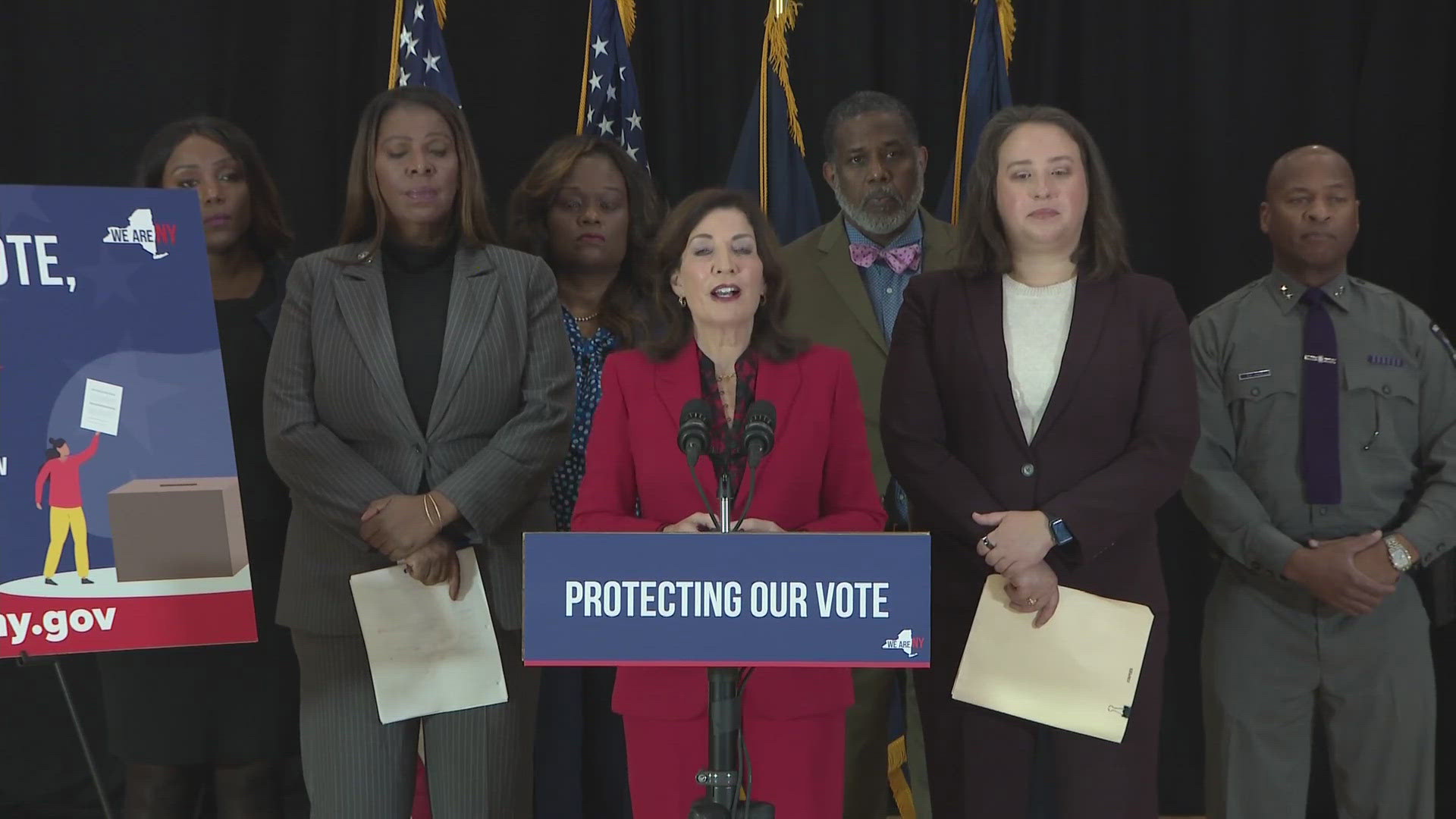Some of the highly-touted, state-sponsored Taste NY stores are largely a losing proposition for New York State in pure dollar and cents terms.
Sixty-six Taste NY stores operate across New York, marketing products made in the state. As a promotional opportunity, some praise the concept. But, when viewed as a retail play, some of the stores clearly are losers.
At two of the state's largest stores, losses — backed by state funds — total more than $1 million since opening. But that matters little to those whose products are featured at the state stores.
For John Alfano and his wife, Dawn, operators of Jada Hill Farm in Deposit, the attractive state-sponsored outlets allowed the two to introduce their goat milk moisturizer and associated products to a wider audience, producing a new revenue stream for the small business.
"It's the best thing that happened in a long time for the small farmer," said Alfano, who sells at least two dozen products through the local Taste NY stores, including creams, soaps, and lip balms. By his estimation, Taste NY accounts for as much as 30 percent of his total volume — money he plows back into the community with big-ticket item purchases such as a new tractor.
State Department of Agriculture and Markets representatives are equally enthusiastic about the program.
"Taste NY invested $3.4 million in 2017, which had a resulting impact of more than $16 million in revenue for the farms, food and beverage producers that the program strives to market and promote," said Jola Szubielski, chief spokeswoman for the state agency.
"That is a direct impact, helping them to reach more customers, grow their business, increase online sales and so on," she continued. "Many of Taste NY’s food and beverage businesses also support our farmers by using New York grown and produced ingredients in their products, and of course the impact on growing the tourism is a critical factor here as well."
Yet, that promotional assistance for Alfano and others comes at a cost to New York taxpayers.
Just how much still cannot be determined because a collective accounting of the entire operation remains unavailable and some of the costs remain hidden in the budgets of other state agencies.
elease of profit and loss statements recently from four of the 66 Taste NY stores, however, gives a small hint of the larger operation.
At the Southern Tier Gateway alone, combined losses at the Taste NY store from May 2015 through April 2018 were $632,000, and that accounting does not include the cost of building the site, an item included in the budgets of other state agencies. Sales over the three-year period were $655,000 at the outlet on the northbound side of I-81 in Kirkwood.
On Long Island, at the $20-million storefront in Dix Hills, losses were $410,000 from October 2016 to December 2017, based on the accounting released by the state. Sales for the 15 months were $905,000.
Under the Freedom of Information Law, the Press & Sun-Bulletin requested a collective accounting for the entire Taste NY operation and income statements for every one of the 66 outlets, common accounting records maintained by retailers.
The initial FOIL inquiry about Taste NY accounting was sent to state Department of Agriculture and Markets in mid-February. Producing those limited accounting records took more than nine months, and came after the Press & Sun-Bulletin published a story about the lack of transparency on the accounting records and after Commissioner Richard Ball was confronted about the delay during an appearance in the Town of Dickinson.
A marked lack of uniformity exists in the accounting records recently provided to the Press & Sun-Bulletin.
"Profit and loss statements that are bring provided were prepared by each individual store and therefore may not have a consistent format," wrote Agriculture and Markets Senior Attorney Tara Wells in her FOIL response.
Lacking common accounting records makes it difficult for the state to compare performance among the various outlets. Because of this, this limits the ability to determine which outlets are laggards and which are stars.
Without those records, it is almost impossible to tell which stores are producing an acceptable return on investment, or compare category ratios to determine if stores deviate from the averages and why.
Records for the Todd Hill store on the Taconic Parkway in Dutchess County show the store broke even in 2016 on operations, with revenues of $1.3 million. In 2017, the store showed a $38,000 surplus on revenues of $1.6 million.
The Office of the New York State Comptroller, which conducts regular audits of state agencies and municipalities, said no review of the Taste NY operation has been performed since the program launched in 2013.
Stores are dotted across the New York landscape, and even extend to San Juan, Puerto Rico.
New York calls Taste NY "the officiial eat local, drink local program" that is designed to highlight "the quality, diversity, and economic impact of food and beverages grown, produced, or processed in New York State."



